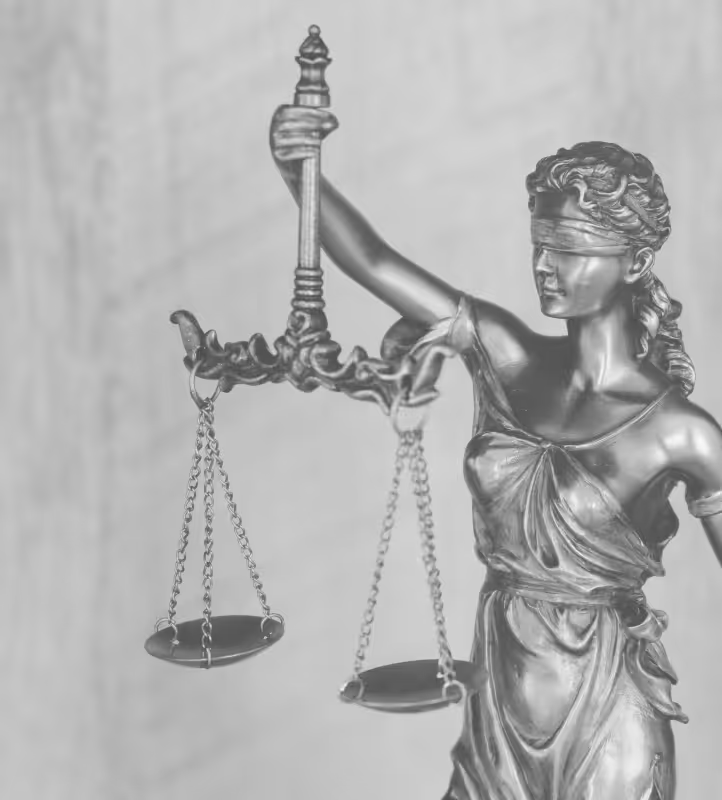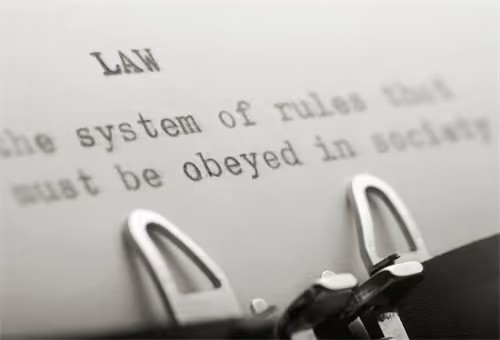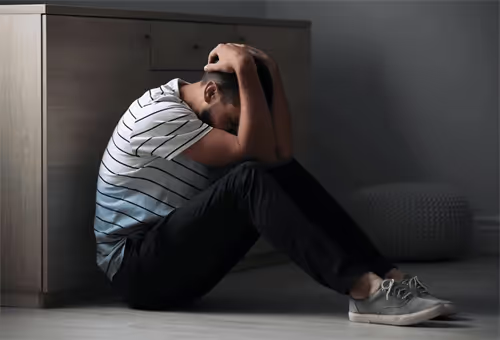Appeals

Experienced Lawyers for Criminal Appeals
At Brightstone Defence, our lawyers are highly experienced in criminal appeals dealt with all over Australia, with a deep understanding of appellate law and courtroom advocacy. We have assisted numerous clients in reducing their penalties and overturning unjust convictions.
We act swiftly to analyse your case and determine the strengths of your appeal. Whether you are wanting to appeal from the Local Court to the District Court, or making an application to the NSW Court of Criminal Appeal, Supreme Court or High Court, we are here to assist.
Our experience includes:
- Appeals involving procedural unfairness or breach of natural justice
- Handling urgent bail applications pending appeal
- Conviction appeals that are based on legal or factual error
- Sentencing appeals that had manifestly excessive penalties
- Drafting persuasive written submissions and arguing in higher courts
We understand how much is at stake. Contact our defence team today for a confidential review of your matter.
An appeal is a formal request for a higher court to review a decision that was made by a lower court or tribunal. The appeal process does not re-hear the case from the beginning, but instead focuses on whether there were legal error, unfairness or other issues in how the original decision was dealt with or made.
Elements the Prosecution Must Prove
What can I appeal?
Conviction appeals
You may appeal your conviction and challenge your guilty verdict if you believe that it is unjust or unfair. However, you must show that:
- The decision was unreasonable, or
- There was a legal or procedural error that affected the outcome of your conviction
Sentence appeals
You may appeal the sentencing that was imposed on you if you believe that the sentence was:
- Too harsh, or
- Based on an error of law or fact
Appeals against refusal of bail
In most cases, where your bail has been refused or granted with conditions that you are unable to meet, you may be eligible to apply for a Supreme Court bail application.
However, it is important to note that the Supreme Court can refuse to hear your bail application, unless on the grounds that:
- You did not have legal representation during your first application and have later obtained representation to reapply
- Materials that are relevant to your application were not presented in your previous application but are now present
- Circumstances that are relevant to your application have since changed since your previous application
Possible Defences
How do I know if I can appeal?
Dependent on the specificities of your case, you may be eligible to appeal. It is essential that you have common legal grounds to be eligible to appeal:
- Unreasonable verdict, being that no reasonable jury would have found you guilty
- Legal error, that the judge made an error in applying the law
- Procedural unfairness, you were not given a fair trial
- New evidence has come to light that was not available previously
- Your sentencing was too harsh and excessive compared to cases that had similar circumstances
Every situation is different and requires individual tailored approaches. Contact our defence team today to seek professional advice today!
Potential Penalties
When should I submit my appeal?
Appeals must be lodged within strict timeframes. If you are outside of this timeframe, you may still apply for an extension, however you will need to show a viable reason for the delay.
Brightstone Defence ensures that all procedural steps are properly followed, maximising your chance of success.

Legal Process
& Options
We assist clients in lodging appeals against criminal convictions and sentences in both the Local Court and higher courts across Australia.
Appeals are a fundamental safeguard of fairness in the Criminal Justice System. This process allows for decisions made by the courts or tribunals to be reviewed or corrected if they are viewed as wrong, unfair or unjust.
If you previously pleaded not guilty and were convicted
Brightstone Defence will develop a tailored appeal strategy that may involve:
- Identifying legal errors made during trial
- Challenging the admissibility or reliability of key evidence
- Demonstrating procedural unfairness or miscarriage of justice
- Highlighting factual inconsistencies in the verdict
We will carefully review transcripts and evidence, challenge flaws in the original decision, and advocate strongly on your behalf.
If you are appealing after pleading guilty
You may argue that the sentence imposed was too harsh or not supported by proper legal reasoning. Appealing after pleading guilty may:
- Reduce penalties
- Result in a more lenient sentence
- Increase your chances of receiving a Section 10 dismissal or Conditional Release Order (CRO), helping you avoid a criminal record
Pleading
Not Guilty
Pleading
Guilty
A criminal defence appeal is a legal process where a person who has been convicted of a crime requests a higher court (usually the Court of Criminal Appeal (CCA)) to review and reconsider the conviction or sentence. This process allows the defendant to challenge the decision of the trial court based on legal errors, new evidence, or other grounds.
You may be able to appeal your conviction if:
- There was a legal error during your trial: For example, incorrect rulings by the judge, improper admission of evidence, or wrongful jury instructions.
- New evidence has come to light that was not available during the original trial and could change the outcome.
- You believe the verdict was unreasonable: If the verdict was not supported by the evidence, you can appeal on the grounds that the conviction was unsafe or unjust.
It’s important to speak with a criminal defence lawyer to assess whether you have sufficient grounds for appeal.
Some common grounds for appeal include:
- Misapplication of the law: If the trial judge misinterpreted or misapplied the law relevant to your case.
- Procedural errors: If there were significant procedural mistakes made during your trial, such as improper jury instructions, failure to disclose evidence, or improper questioning by the prosecution.
- Insufficient evidence: If the evidence presented at trial was insufficient to support the conviction.
- New evidence: If new, compelling evidence is discovered after the trial that could change the verdict.
- Unfair trial: If the trial was unfair in a way that compromised your ability to get a just outcome (e.g., inadequate legal representation).
- Sentencing errors: If the sentence imposed was manifestly excessive or wrong in law.
Yes, you can appeal your sentence if you believe it is too harsh or disproportionate. The Court of Criminal Appeal (CCA) can reduce or vary your sentence if they determine that the sentence was:
- Manifestly excessive: If the sentence was too severe given the nature of the offence and the circumstances.
- Improperly applied sentencing principles: If the judge made an error in applying the relevant sentencing laws or guidelines.
- A result of procedural unfairness: If there were procedural issues in the sentencing process that affected the fairness of the outcome.
- Appeal against conviction: This challenges the conviction itself, asking the higher court to determine whether the trial court’s decision was correct. The grounds for appeal could be legal errors, insufficient evidence, or procedural issues.
- Appeal against sentence: This focuses on the penalty imposed following a conviction, asking the higher court to review whether the sentence was appropriate or too severe. This could be based on mitigating factors that were not adequately considered or an incorrect application of sentencing laws.
The length of a criminal appeal can vary depending on several factors, including the complexity of the case, whether new evidence is introduced, and the court’s schedule. Generally, the process can take several months to a year. Some cases may take longer if there are delays in gathering evidence or obtaining court documents.
You will be given a timeline when you file your appeal, but it’s important to stay in touch with your lawyer for updates.
Yes, it is possible to appeal if you pleaded guilty. However, it is generally more difficult to appeal a guilty plea than a conviction following a trial. Some potential grounds for appealing a guilty plea include:
- Coercion or duress: If you were forced or pressured into pleading guilty against your will.
- Ineffective legal representation: If your lawyer failed to properly advise you or did not adequately prepare your case.
- Factual mistake: If you pleaded guilty to a crime you did not commit and new evidence comes to light that proves your innocence.
Yes, if the Court of Criminal Appeal finds that your sentence was too harsh, it has the power to reduce it. The court may:
- Reduce the length of imprisonment.
- Alter the type of sentence (e.g., change a prison sentence to a community service order or a fine).
- Vary the conditions of a sentence (e.g., change parole conditions).
However, the court will only reduce a sentence if they find it to be manifestly excessive or if there was an error in the sentencing process.
No, you cannot appeal if you were acquitted or found not guilty in a criminal trial. The prosecution, however, may have the right to appeal a verdict of acquittal under very limited circumstances (e.g., in a case of legal error or a miscarriage of justice). But as a defendant, if you are acquitted, the matter is considered resolved, and you cannot appeal the verdict.
Our criminal defence lawyers can assess your case, advise on possible grounds for appeal, and guide you through the Court of Criminal Appeal process.
You can contact Brightstone Defence to arrange a consultation and discuss your appeal options with an experienced criminal defence lawyer.
A criminal defence appeal is a legal process where a person who has been convicted of a crime requests a higher court (usually the Court of Criminal Appeal (CCA)) to review and reconsider the conviction or sentence. This process allows the defendant to challenge the decision of the trial court based on legal errors, new evidence, or other grounds.
You may be able to appeal your conviction if:
- There was a legal error during your trial: For example, incorrect rulings by the judge, improper admission of evidence, or wrongful jury instructions.
- New evidence has come to light that was not available during the original trial and could change the outcome.
- You believe the verdict was unreasonable: If the verdict was not supported by the evidence, you can appeal on the grounds that the conviction was unsafe or unjust.
It’s important to speak with a criminal defence lawyer to assess whether you have sufficient grounds for appeal.
Some common grounds for appeal include:
- Misapplication of the law: If the trial judge misinterpreted or misapplied the law relevant to your case.
- Procedural errors: If there were significant procedural mistakes made during your trial, such as improper jury instructions, failure to disclose evidence, or improper questioning by the prosecution.
- Insufficient evidence: If the evidence presented at trial was insufficient to support the conviction.
- New evidence: If new, compelling evidence is discovered after the trial that could change the verdict.
- Unfair trial: If the trial was unfair in a way that compromised your ability to get a just outcome (e.g., inadequate legal representation).
- Sentencing errors: If the sentence imposed was manifestly excessive or wrong in law.
Yes, you can appeal your sentence if you believe it is too harsh or disproportionate. The Court of Criminal Appeal (CCA) can reduce or vary your sentence if they determine that the sentence was:
- Manifestly excessive: If the sentence was too severe given the nature of the offence and the circumstances.
- Improperly applied sentencing principles: If the judge made an error in applying the relevant sentencing laws or guidelines.
- A result of procedural unfairness: If there were procedural issues in the sentencing process that affected the fairness of the outcome.
- Appeal against conviction: This challenges the conviction itself, asking the higher court to determine whether the trial court’s decision was correct. The grounds for appeal could be legal errors, insufficient evidence, or procedural issues.
- Appeal against sentence: This focuses on the penalty imposed following a conviction, asking the higher court to review whether the sentence was appropriate or too severe. This could be based on mitigating factors that were not adequately considered or an incorrect application of sentencing laws.
The length of a criminal appeal can vary depending on several factors, including the complexity of the case, whether new evidence is introduced, and the court’s schedule. Generally, the process can take several months to a year. Some cases may take longer if there are delays in gathering evidence or obtaining court documents.
You will be given a timeline when you file your appeal, but it’s important to stay in touch with your lawyer for updates.
Yes, it is possible to appeal if you pleaded guilty. However, it is generally more difficult to appeal a guilty plea than a conviction following a trial. Some potential grounds for appealing a guilty plea include:
- Coercion or duress: If you were forced or pressured into pleading guilty against your will.
- Ineffective legal representation: If your lawyer failed to properly advise you or did not adequately prepare your case.
- Factual mistake: If you pleaded guilty to a crime you did not commit and new evidence comes to light that proves your innocence.
Yes, if the Court of Criminal Appeal finds that your sentence was too harsh, it has the power to reduce it. The court may:
- Reduce the length of imprisonment.
- Alter the type of sentence (e.g., change a prison sentence to a community service order or a fine).
- Vary the conditions of a sentence (e.g., change parole conditions).
However, the court will only reduce a sentence if they find it to be manifestly excessive or if there was an error in the sentencing process.
No, you cannot appeal if you were acquitted or found not guilty in a criminal trial. The prosecution, however, may have the right to appeal a verdict of acquittal under very limited circumstances (e.g., in a case of legal error or a miscarriage of justice). But as a defendant, if you are acquitted, the matter is considered resolved, and you cannot appeal the verdict.
Our criminal defence lawyers can assess your case, advise on possible grounds for appeal, and guide you through the Court of Criminal Appeal process.
You can contact Brightstone Defence to arrange a consultation and discuss your appeal options with an experienced criminal defence lawyer.
SUCCESS CASES & ARTICLES
Brightstone Defence delivers focused criminal defence services year-round and has built a strong track record of successful outcomes.
Meet our lawyers
WORLD CLASS
REPRESENTATION
100+ 5 Star Reviews
Personalised legal strategies tailored to each case
Recognised leaders in criminal defence law
Free initial consultation and case evaluation
Proven success in high-stakes and complex cases
Get AN instant estimated Quote
and a free consultation session
Facing criminal charges? Our experienced criminal defence lawyers are here to help. Book your free consultation now to discuss your case and understand your options.









